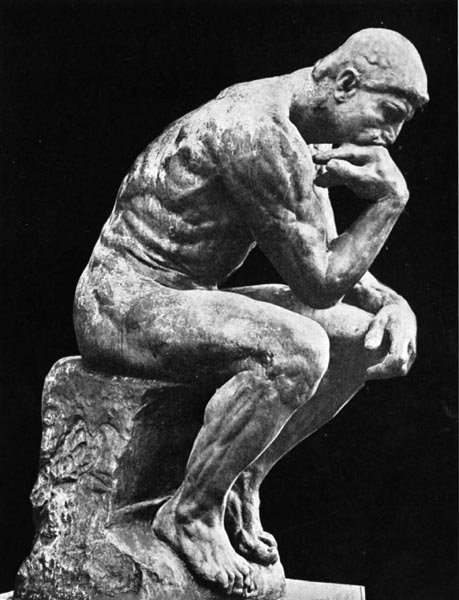Characteristics of mental processes: thinking, memory, attention and imagination. Thinking and Intelligence. /last part/
In the structure of the intellect is synthesized a unity of rational-cognitive / emotional-assessment / affective / and creative-heuristic/ elements. It occurs in all mental operations, but above all in and through thinking and creative imagination, and is revealed most clearly in the process of self-solving emerging problems. An Integrator of Intelligence is thinking with the specific operations and qualities of the mind. Natural and artificial intelligence is distinguished. The first manifests itself directly from the person - the subject of activity and social communication, and the second is the property of man-made "sensible" machines that perform mental operations on pre-programmed human programs and rules.
Intellect is still verbal, non-verbal, and general. Some differences in intellect are conditioned by the conditions and time, way and place of life. As a specific and least studied type of intellect, the social intellect is differentiated and treated. Intelligence is multifactorial, although it arises and develops mainly in the process of people's social work. It is a mental capacity received by man on the day of his conception by his parents on the path of biological and cosmic heredity. Important methods of exploring the intellect are: the Wexler method, the Amthauer method, the Raven progressive matrix scale, a non-verbal quiz to measure the ability to think in the widest possible sense, an analytical test of intellect research using the Maile method. Generally speaking, the different approaches to intellect study and determination can be reduced to two sets of theories: - the theological theories of intellect; - experimental-psychological theories of intellect. On the basis of intellect, the creative activity of man also functions. Creative activity is a higher level of knowledge. It can not be realized without the prior accumulated knowledge.
Finding something new is possible only when knowledge is already mastered in a given area. The stages of the creative process, summarized, can be represented in the following way, and they are: preparatory; incubation; enlightenment; check. These stages are characteristic of every kind of creative activity and especially for scientific creativity. In some cases, the stated stage of the creative process can be distorted to the extent that there is creativity in the field of theory and creativity with the support in practice. The creative activity of the person implies a successful combination of the speed and depth of knowledge. An important condition for a successful creative activity of a person is the creation of a certain emotional attitude, providing an enhanced quality of knowledge in complex situations. Criticality of cognitive activity is also a prerequisite for the correct evaluation and revision of past experience without which the creative process is unthinkable. As a feature of creativity, its "paradox" can be mentioned.
The creative activity requires the manifestation of the so - called. "Side-thinking", which is based on fundamentally different principles. Intuition is also an important moment in creative activity, usually viewed as a specific method of knowledge. It is now widely understood that the transition from one logical system to another in the course of reflection is only possible with the help of intuition. To sum up, it can be said that logic guarantees credibility and serves as a tool of proof, and intuition is a tool of ingenuity.

I think your reference to "intuition" is close, perhaps also a connection to more than our individual ability to think and reason, thus allowing the collective energy to flow thru us, has something to do with our manifestations as well. Much peace and goodwill.
This post has received a 2.68 % upvote from @boomerang.